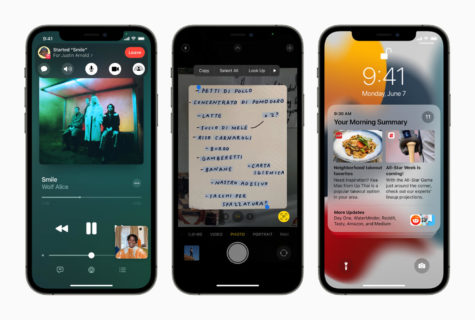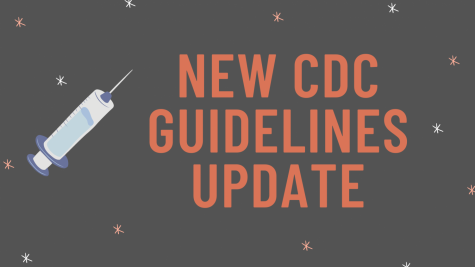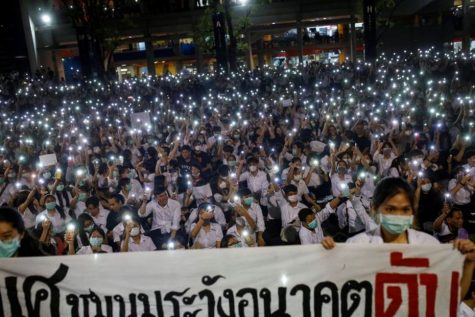Apple’s Chief Declines FBI Request for iOS 7 Hack
Photo Natalia Ayoub
March 4, 2016
In light of the San Bernardino investigation, the FBI has issued a warrant for Apple to hack into a phone of one of the shooting suspects, who allegedly assisted the killing of 14 people and the injuring of 22. The FBI requests that Apple write a new essentially corrupted version of IOS 7, which would allow them not only to access the shooter’s phone files but also the iPhone of anyone and everyone else.
Apple argues that creating this corrupted software would compromise data on every iPhone in the United States. In a previous case, Bernstein vs. US Department of Justice, it was established that code and speech, including data on electronic devices, is protected by the first amendment. However, when it interferes with a federal case involving the death of 14 people, the law is debatable.
Apple argues that the FBI does not need a subscript for a corrupted version of IOS 7, giving them the ability to hack into every iPhone with the IOS7 software. Up until this point in the case, Apple has been relatively compliant to the FBI’s demands. This seems to be where they draw the line.
This entire case brings up the question: where is the line between standing up for the people’s rights to privacy and interfering with the government’s investigations?
“I don’t think that they should create a whole system that has the ability to hack every iPhone, but lets say, there’s a shooter and they need to look at his phone for evidence, they have every right to do that, because he is a suspect,” Alex Hensgen (’19) said
Sean Hensen (’18) agrees with Hensgen’s stance.
“Even though what he did was terrible, it’s a dangerous precedent, but if the government can just take whatever they want then what is stopping society from becoming you know like 1984.”
Robinson Sophomore, Sean Hensen states.
Former Apple CEO Bill Gates understood the conflict that has formed between the right to privacy and our technological society.
“Historically, privacy was almost implicit, because it was hard to find and gather information,” said Gates. “But in the digital world, whether it’s digital cameras or satellites or just what you click on, we need to have more explicit rules – not just for governments but for private companies.”






















